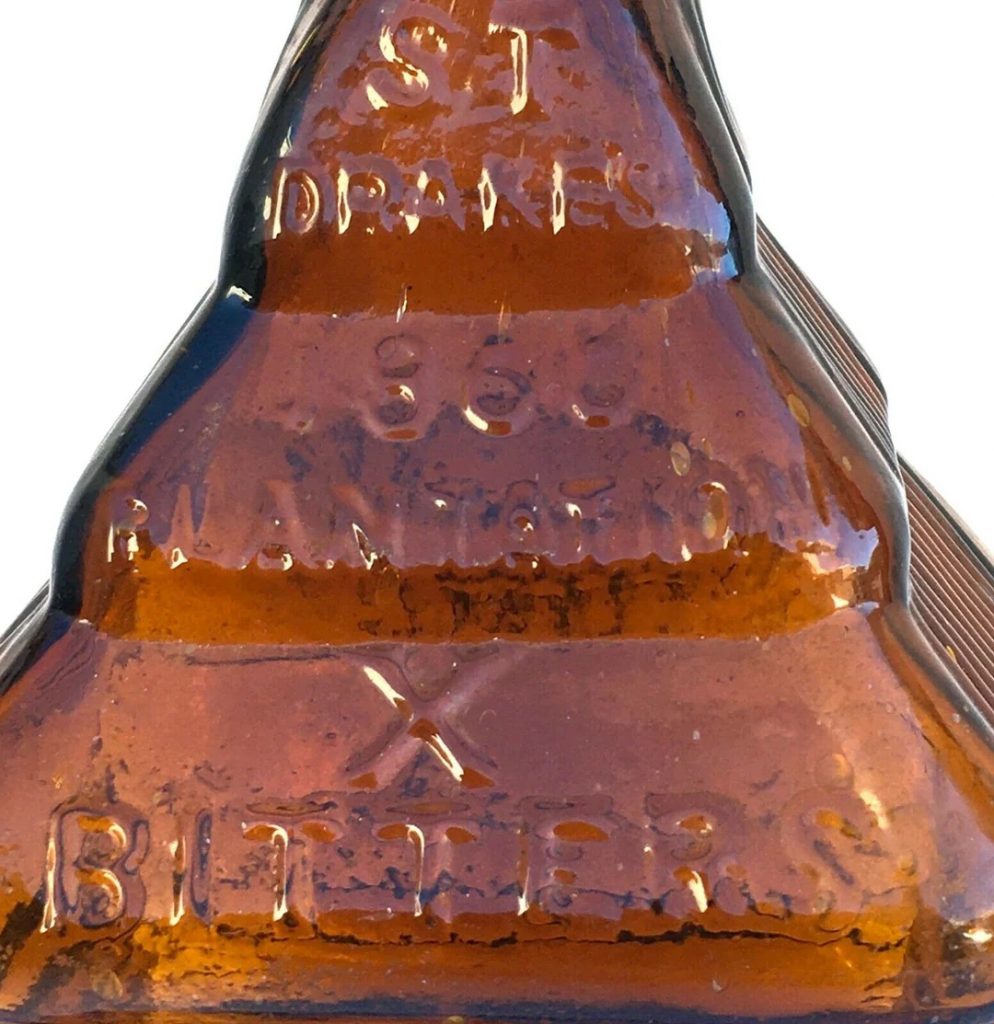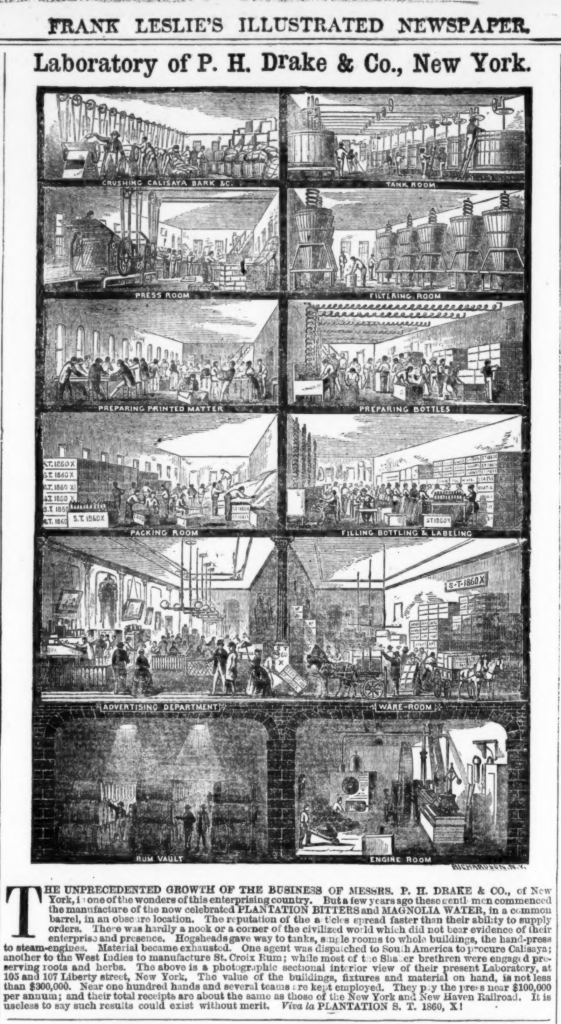Mark Twain’s story of the Wandering Jew in Chapter 54 of the The Innocents Abroad says their guide pointed out a mark left on a wall by the Wandering Jew, which read:
S T.—1860—X.
It isn’t dwelt on in the book, probably because everyone in the United States reading the book understood the joke immediately.
In the 1860s, a company called P.B. Drake & Co. created a massive guerrilla advertising campaign. The campaign started by simply placing the above cryptic text on the sides of buildings and even rocks. New Hampshire even had to pass a law banning advertisements that defaced natural settings, after Drake painting their ad on the side of the White Mountains. After the company generated enough interest in what the cryptic text was, it finally added the name of their product, Drake’s Plantation Bitters. They then started advertising in newspapers across the county. You can see one advertisement on the front page of the New York Times (June 28, 1862):

The cryptic text was also on the bottles, which were oddly shaped like log cabins:

Bitters were at the time a kind of medicine that was sold to cure just about any ailment. Those medicinal claims were eventually outlawed by the US government in the early 20th century, which left the only bitters standing those used to flavor alcoholic drinks (you can’t make an Old Fashioned or a Manhattan without a few dashes of bitters). While bitters were basically fake medicine, they were very much real alcohol. Drake’s was based on rum from St. Croix (which is probably the origin of the ST and the X in the cryptic text). During a time when temperance (avoidance of alcohol) was very much in vogue, bitters allowed many people to drink ‘for medicinal purposes’ which was acceptable.
Here’s an illustration in Frank Leslie’s Illustrated Newspaper, on June 29, 1867 (the same edition contains an illustration of the Quaker City departing New York) that shows the Drake factory in New York:

So imagine you’re an American reader of The Innocents Abroad, and you see the text used in Drake’s ad for its bitters. You’d probably break out laughing. It probably didn’t hurt P.B. Drake & Co. either, with their guerrilla advertising making it not only onto the side of mountains, but into one of the best selling books in the 19th century.
Leave a Reply